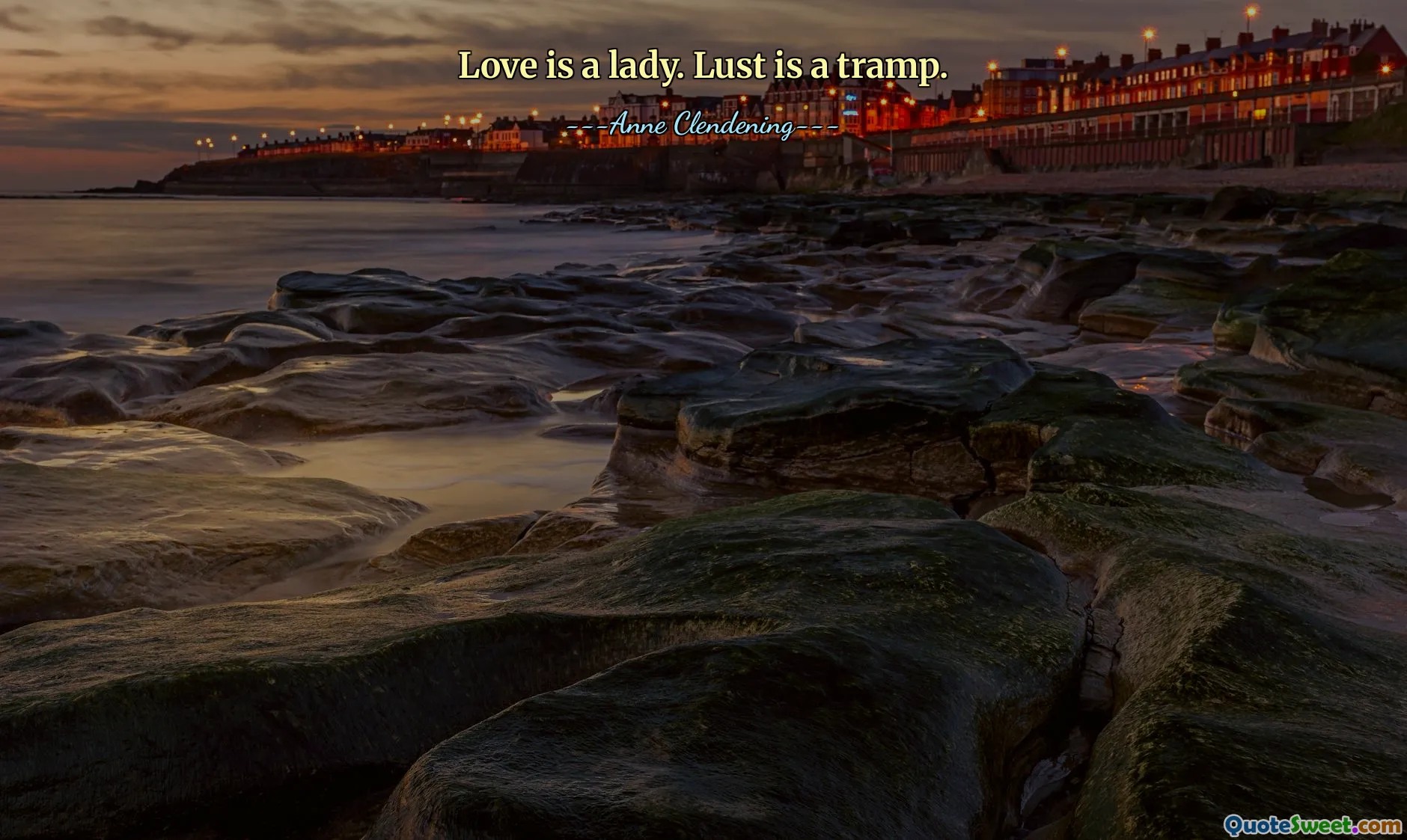
Love is a lady. Lust is a tramp.
This quote presents a striking dichotomy between love and lust, framing them as fundamentally different entities with contrasting reputations. Love is depicted as refined, noble, and deserving of admiration—like a lady—while lust is characterized as uncouth, unrefined, and morally questionable—like a tramp. This dichotomy invites reflection on the nature of human emotions and their societal perceptions. Love is often associated with depth, commitment, emotional connection, and selflessness, which elevates it beyond mere physical attraction. Conversely, lust is predominantly driven by physical desire, often lacking emotional depth, and may be viewed as superficial or fleeting. Society tends to celebrate love as a virtuous pursuit, an ideal that fosters personal growth and meaningful relationships. Lust, however, is often stigmatized as impulsive or shallow, linked to immediate gratification rather than lasting connection. The quote suggests that genuine love elevates individuals and society's moral standards, while lust may degrade or diminish one's perceived character. Reflecting on this, one might consider how cultural narratives shape our perceptions of these emotions, and whether contemporary views uphold the same distinctions. It's worth acknowledging that in real life, love and lust can intertwine, and the lines between them may blur. Still, this analogy prompts us to uphold certain values about the way we seek and nurture intimate relationships. Ultimately, the quote challenges us to think about authenticity, morality, and the qualities we admire—and aspire to embody—in our emotional lives.
---Anne Clendening---











